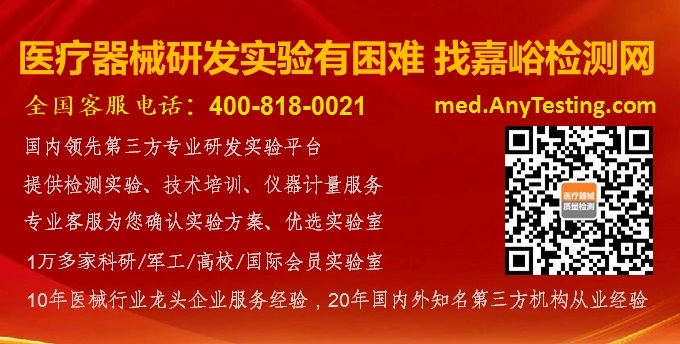尽管在中国许多公司使用臭氧对洁净室进行消毒,许多业内人士对其消毒效果也将信将疑。本文汇总了国内外不同法规/指南对臭氧消毒浓度及其条件的要求,供大家参考:
GB 28232-2020《臭氧消毒器卫生要求》:
空气消毒臭氧浓度:5mg/m3~30mg/m3 ,相对湿度≥70%,作用时间为30~120min。
物体表面消毒:臭氧浓度应≥60mg/m3 ,相对湿度≥70%, 作用时间60 min~120 min。
用臭氧水对物体表面消毒时:水中臭氧浓度应≥10 mg/L, 作用时间≥60 min。
消毒效果应达到以下标准:
空气消毒
臭氧消毒器用于空气消毒时,应符合以下要求:
消毒空气时杀灭微生物指标
水消毒
臭氧消毒器用于水消毒时,应符合以下标准:
消毒水时杀灭微生物指标
医疗器械和用品消毒
臭氧消毒器用于医疗器械和用品消毒时,应符合以下标准:
消毒医疗器械和用品时杀灭微生物指标
物体表面消毒
臭氧消毒器用于物体消毒时,应符合以下标准:
消毒物体表面时杀灭微生物指标
验证指南
消毒时关闭相应的新风进口和回风排放阀门,使整个被消毒的洁净区空气通过净化系统风管形成循环,臭氧发生器即开始工作。如每日做空气灭菌,一般可开机 1~1.5h;如每周以臭氧代替化学试剂熏蒸对物体表面、墙壁、地面及设备灭菌,一般可开机 2~2.5h。
对空气中浮游菌,臭氧灭菌浓度为(2~4)×10^-6(2~4ppm);对物体表面的沉降菌,为(10~15)×10^-6(10~15ppm)
设计、应用臭氧灭菌 60min 达到相对浓度后,继续保持一段时间 (1~1.5h), 即可达到对机器设备和建筑物体表面沉降菌杀灭的目的。
PDA TR 70 无菌生产设施的清洁消毒程序原理
The use of Ozone Gas is another alternative for gassing small or large scale operations. Ozone is made by adding high voltage to oxygen. The system uses a high concentration of ozone gas that bintegrates a gas generator to emit the Ozone to the area to be decontaminated. Normally the design specifications for the system included an ozone gas concentration of 200 ppm or more, relative humidity of 80% or more, and a treatment time that is determined by the size of the area, the inherent bioburden and the obstructions contained within the area. These systems have been employed in many industry settings and are now being considered as a possible alternative for GMP operations.
用气体处理小范围或大规模操作可选的另一种方式是使用臭氧。臭氧是通过氧气加高电压制成。该系统使用了高浓度的臭氧气体,集成一个气体发生器向待消毒区域内释放臭氧。该系统的设计规范通常为臭氧浓度200ppm或更高(注释:臭氧1ppm≈2mg/m3, 200ppm≈400mg/m3),相对湿度80%或更高,处理时间取决于区域的大小,自身的生物负载和区域内的障碍物情况。这个系统已经在多个产业环境内使用,并且现在正在被考虑作为GMP操作中可能的备选。
Whenever chemical agents are used for large-scale gassing or fogging of clean rooms, safety concerns must be addressed. All of the agents discussed can result in injury or death of personnel if proper precautions are not taken to ensure the containment of the chemical agent to the intended areas.
每当化学剂用于大规模气体处理或雾化处理洁净室时,必须考虑安全性。如果未采用正确的防范措施来保证化学消毒剂被遏制在拟处理区域范围内,那么所讨论的所有消毒剂都能够导致人员的伤害或死亡。
For many of the agents discussed, residues that are left behind on product-contact surfaces are also a significant concern and must be evaluated.
对于所讨论的大部分消毒剂而言,在与产品接触表面的残留物也是一个重要问题,必须评估。
Although these methods of decontamination are effective, they should not be used to replace a routine program for cleaning and disinfecting the clean room areas. If they are used as the standard practice, they should be validated to demonstrate their ability to achieve an appropriate level of bioburden reduction. This should be performed taking into consideration the material of construction present in the clean room areas.
尽管这些消毒方法是有效的,然而它们不能取代清洁和消毒洁净室区域的例行程序。如果它们作为标准实践使用,那么应当对其进行验证以证明它们能够使生物负载降低适当水平。实施这个验证时应当将洁净区内的构造材质考虑在内。
It is also important to consider the source of these organisms, for gassing will only remove what is present and may leave behind moisture, allowing for further proliferation if the causative agents have not been removed from the area.
同样重要的还有考虑这些生物体的来源,因为气体处理只能除去存在的生物体,并会留下湿气,如果病原体没有从区域中除去,会使得其进一步增殖。
文献研究
臭氧气体浓度200 ppm或更高,相对湿度为80%或更高以及灭菌时间为120分钟。通过放置通风装置以确保均匀的气流,使臭氧气体灭菌过程中气流可以覆盖整个房间。通过将臭氧气体灭菌过程中的臭氧气体浓度乘以灭菌时间得出的浓度目标值(mg / m(3)(= ppm)×min)等于或大于24×10(3)(ppm·min)。使用生物指示剂(BI)确认洁净室中的消毒结果,在所有测量点都获得了阴性结果,这表明在引入臭氧气体消毒系统的实际工厂中有效地进行了消毒。
——Biocontrol Sci. 2013;18(1):9-20. doi: 10.4265/bio.18.9.Confirmation of the sterilization effect using a high concentration of ozone gas for the bio-clean room,Takuji Iwamura 1, Katsunori Nagano, Toshihiro Nogami, Noritomo Matsuki, Noriyoshi Kosaka, Hideharu Shintani, Miyoshi Katoh
如何计算臭氧产量是否足够?
W= C×(V1+V2+V3)×(1+X)/(1-S)
W:所需臭氧发生器产量,mg/h
C:所期望的臭氧浓度,mg/m3
V1:洁净区总体积;
V2:送风管总容积;
V3:维持洁净区正压的新风补充量,通常,V3≈HVAC系统总空气循环量m3/h*1.2%
X:通过风管、门缝等泄漏的臭氧百分比,可通过风量泄漏量折算
S:臭氧衰减速率,在25℃,60%@RH条件下,臭氧衰减速率月为60
臭氧消毒后残留浓度
GB/T18883《室内空气质量标准》:≤0.16mg/m3
FDA要求药物生产环境臭氧浓度:≤50 ppb
美国职业安全与健康管理局要求一般工业环境允许接触限为:≤100 ppb,短期允许接触限为:≤300 ppb








